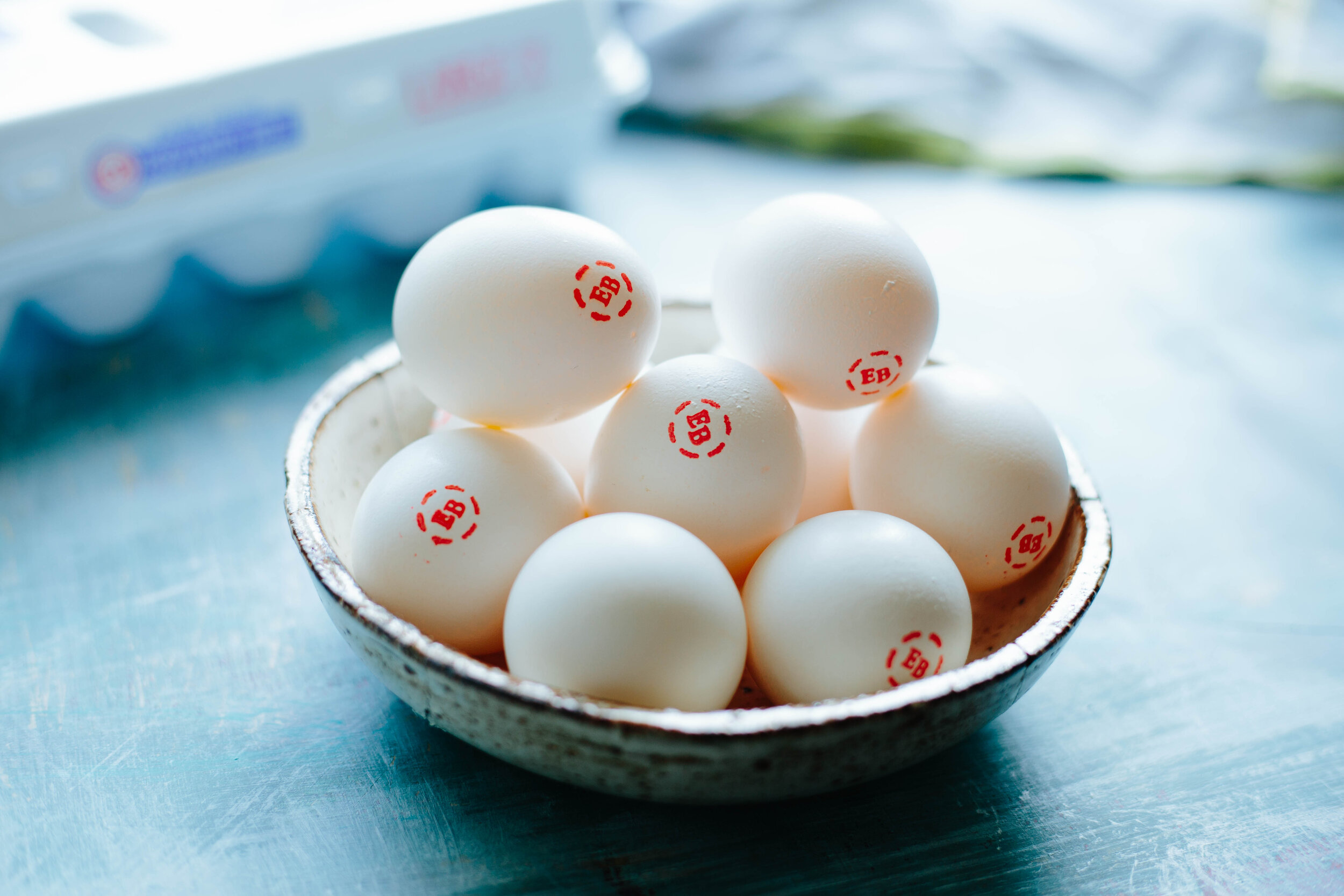Is It OK To Eat Eggs While Pregnant? A Dietitian Explains.
Image Courtesy: Eggland’s Best
As a prenatal registered dietitian, I know first-hand that there are some no-nos when it comes to a prenatal diet. From raw oysters to rare hamburgers, there are some foods that are simply too risky to eat when a person is feeding their baby bump.
Yet, while there are a handful of foods that a person should avoid during this stage of life, there are other foods that a pregnant person should eat when nourishing a tiny baby – one shining star being eggs. In short, as long as the egg is fully cooked or pasteurized, enjoying eggs is a-ok – and encouraged!
Why are eggs so great for pregnancy?
Whether they are scrambled, hard-boiled, or fried, eggs are one of the most nutrient-dense foods in the world and are a powerhouse when it comes to pregnancy nutrition. Eggs are a great source of protein that just so happens to be packed with a number of pregnancy-supporting nutrients, including folate, vitamin B12, and vitamin D," Ashley Eskew, MD, MSCI, a Charlotte-based OB/GYN and co-founder of OvulifeMD, shares.
And among the slew of nutrients that are jam-packed in these bad boys, one incredibly noteworthy one is choline. Choline is a water-soluble vitamin that plays a role in baby's brain and spinal cord development during pregnancy. Data shows that higher choline intake during pregnancy is linked to outcomes like having children with better attention spans, better child visual memory, and faster information processing speed. In other words, taking in adequate choline plays a huge role in your future braniac's noggin before it is even born.
And while it is considered to be a key nutrient during pregnancy, it is estimated that only 8% of pregnant Americans do not take in enough of it. In fact, it is such an important nutrient, that the updated Dietary Guidelines for Americans, 2020-2025, highlights the importance of consuming enough choline during pregnancy to support the health of the baby (450 milligrams per day to be exact).
How To Eat Eggs During Pregnancy
"Eggs are a very healthy choice for pregnant people, yes, even daily," Ryann Kipping, RDN, CLEC, registered dietitian and author of The Feel-Good Pregnancy Cookbook, shares.
And as long as there are no underlying health concerns, healthy people can enjoy one egg a day according to the American Heart Association (vegetarians can eat even more). Of course, if you have an egg allergy or intolerance, eggs should be avoided.
However, eating eggs during pregnancy does come with some caveats: Eggs should be fully cooked before eating, unless a pasteurized egg option is being used, to minimize risk of food borne illness like salmonella poisoning. Because there is no pregnant person in the universe who wants to deal with a bout of diarrhea during her precious nine months of expecting.
Additionally, pregnant people should avoid eating eggs that are cooked over easy, poached, or soft-boiled (sorry to all of you eggs benedict lovers). Additionally, foods made with raw eggs -- think raw cookie doughs, certain salad dressings, and some homemade ice creams – should be avoided as well.
For busy mamas-to-be, a simple solution to getting eggs into your diet is exploring Eggland's Best Hard-Cooked Peeled Eggs, a peeled pre-cooked high-quality egg that is ready-to-eat and super-convenient – no need to spend time cooking and peeling! These particular eggs come from hens that are fed a special feed, so they not only provide protein, vitamin B12, choline, lutein (a nutrient that supports development of the visual and nervous system during pregnancy), and a slew of other pregnancy-friendly nutrients, these eggs also have more than double the omega-3 fatty acids than ordinary eggs. Eskew explains that these omega-3s "can keep inflammation at bay." Popping one of these eggs a day along with your prenatal supplement could give your body a nutritional boost and is an excellent habit to get into to help meet your nutrition needs.
And since Eggland's Best eggs contain 6 times more vitamin D than ordinary eggs, noshing on one of these bad boys can also help maintain healthy levels of this nutrient, and thus, reduce the risk of developing pregnancy-related outcomes linked to vitamin D deficiency like preeclampsia and preterm birth – certainly a dietitian-approved snack! Expecting moms have enough on their plate, so finding convenient solutions like these pre-cooked and peeled eggs can make life a little bit easier while also being nutritious.
Yes, You Can Eat Eggs During Pregnancy!
Eating eggs during pregnancy is not only ok to do, but it is actually a very healthy practice for both yourself and for your baby. So, make yourself an egg salad sandwich, whip up some deviled eggs, or enjoy a veggie omelet. Your baby's brain will thank you!
